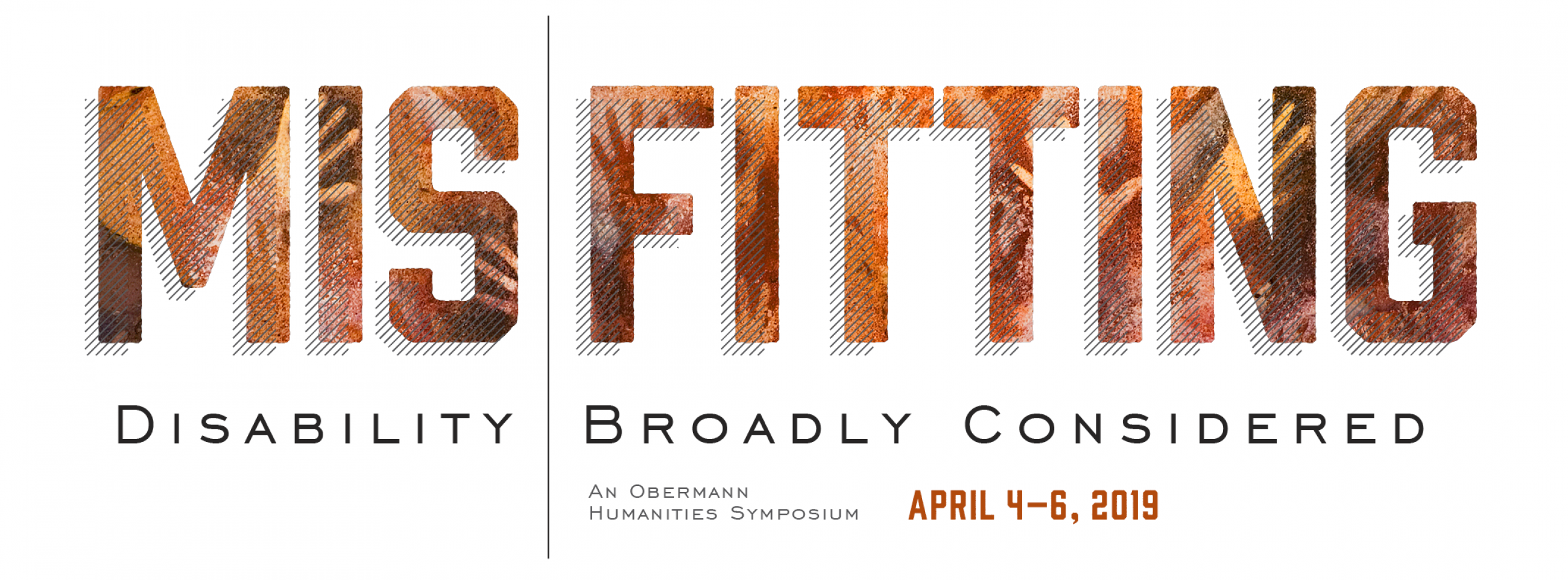Disability is a universal human experience. Like gender, race, class, and sexuality, disability affects everyone in multiple ways, shaping and informing our notions of normality, family, community, fitness, and worth. Disability Studies, one of the fastest growing interdisciplinary fields in the humanities, social sciences and health sciences, examines abilities in the context of societies and cultures as they change over time. The symposium will consider the pervasive (though often unnoticed) influence of disability on and in the performing, visual, and literary arts, in philosophy and religion, in political and economic life, and in everyday language, as we explore when and how minds and bodies “misfit.”
On April 4-6, 2019, Misfitting: Disability Broadly Considered, will bring leading disability scholars from diverse disciplines to discuss the relevance and importance of disability to their respective fields. Co-directed by Douglas Baynton (History) and Tricia Zebrowski (Communication Sciences & Disorders) with support from graduate students Hope Gerlach (Communication Sciences & Disorders) and Corey Hickner-Johnson (English), the symposium will feature:
- Nina G., comedienne and advocate/educator around issues of stuttering and dyslexia
- Rosemarie Garland-Thomson, a professor of English and bioethics at Emory University
- Michele Friedner, Comparative Human Development, University of Chicago; author of Valuing Deaf Worlds in Rural India
- Margaret Price, English, Ohio State University; author of Mad at School: Rhetorics of Mental Disability and Academic Life
- Sami Schalk, Gender, Women’s, and Sexuality Studies, University of Wisconsin-Madison; author of the newly published Bodyminds Reimagined: (Dis)ability, Race, and Gender in Black Women’s Speculative Fiction
- Susan Schweik, English, University of California-Berkeley; author of The Ugly Laws: Disability in Public
- Joseph Straus, Music, City University of New York; author of Extraordinary Measures: Disability in Music
